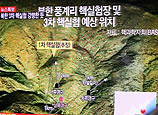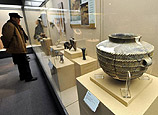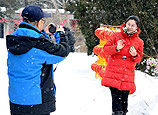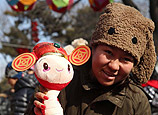
Since July 2011 he has published four research papers, participated in three conferences, developed one patent and supervised the work of Chinese and foreign students.
"Working in China we normally finish our projects with more passion than we would back home," he says.
"For example, we cooperate with colleagues, but here I also have the possibility to talk to people from other institutes by myself. This is something I wouldn't do in my home country."
Duan Huiling, Lanza's professor, is impressed with his attitude.
"He is creative, effective and passionate in his scientific research," she says.
"He always comes to talk to me about his new ideas and research results. He's also well-disciplined."
Lu Pengyu, who works in the same laboratory, says Lanza is passionate about work and life generally. "Sometimes Chinese students can be very introverted or conventional, but he always encourages us to try new things."
Moreover, because of differences in culture and modes of thinking, Lanza provides them with some refreshing ideas, Lu says.
Lanza's plan is to have a permanent position at a Chinese university and have his own research group. But competition is fierce, mostly from Chinese students who studied overseas.
"Now China is giving money to attract foreigners to come here. China wants to attract talent from abroad, so this is now a very good environment for us to come and stay."
Within two years he intends to apply for the One Thousand Foreign Experts Project, which the Chinese government launched last year.
In the project, 500 to 1,000 high-end non-Chinese professionals are invited to work in China, to promote innovation and scientific research.
For Lanza, this is the next step and something he is working hard to achieve.
"I'm not here for leisure, I'm here for work."

















 Overloaded truck crushes bridge in NW China
Overloaded truck crushes bridge in NW China


![]()
